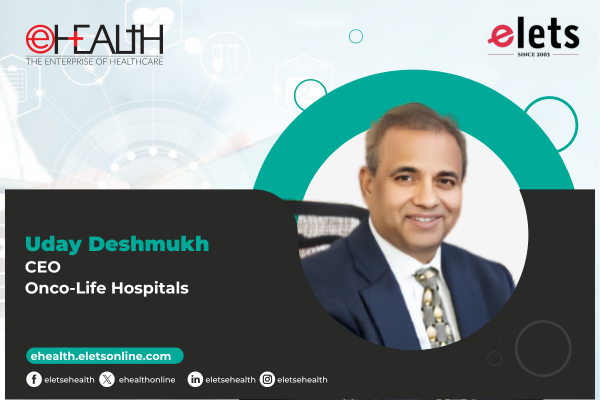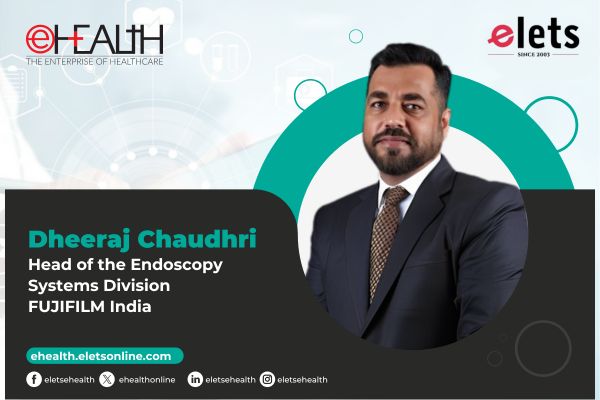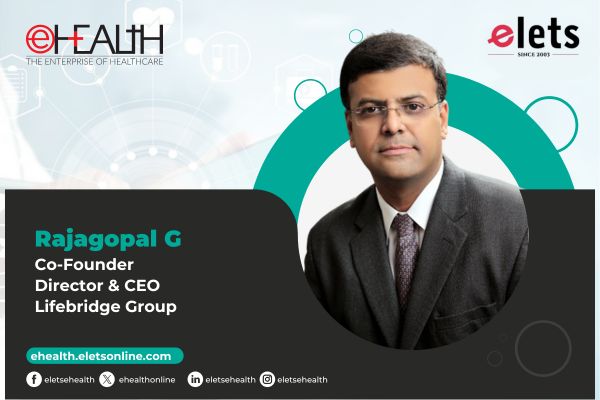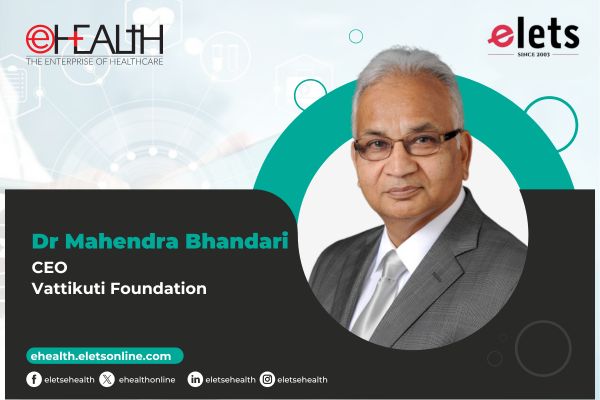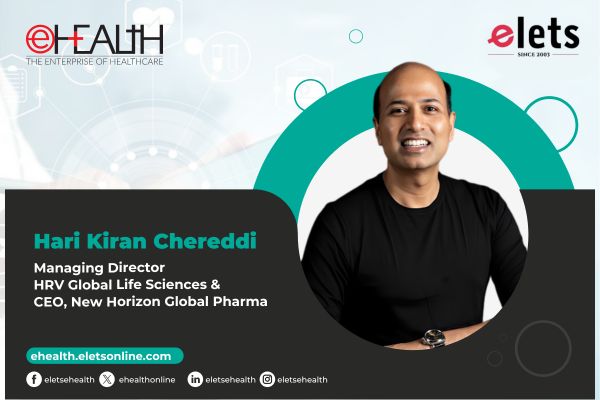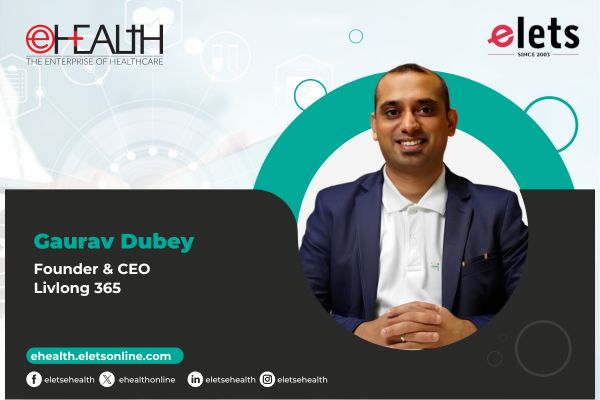
 Dr Anurag Mehta, Director, Laboratory Services, Rajiv Gandhi Cancer Institute & Research Centre and the Organizing Secretary, RGCON 2014 (Lymphoma “ Biology to Therapy, Feb 15-16, 2014) discusses the nutritional facts and fallacies with Shahid Akhter, ENN
Dr Anurag Mehta, Director, Laboratory Services, Rajiv Gandhi Cancer Institute & Research Centre and the Organizing Secretary, RGCON 2014 (Lymphoma “ Biology to Therapy, Feb 15-16, 2014) discusses the nutritional facts and fallacies with Shahid Akhter, ENN
Receiving a cancer diagnosis can be overwhelming and no less complicated. Within a short duration of time, one is expected to learn a lot of things so that he is more familiar with the condition and the treatment process. Nutrition is one such aspect that fuels appetite for more information.

Following diagnosis, what nutritional strategies would you recommend ?
As a patient, one goes through a lot of emotional and social stress and tries to acquire all the possible knowledge about the treatment, side effect and lifestyle modifications. After some of the dust has settled regarding the treatment plan and chemotherapy, the thoughts of many new lymphoma patients turn to diet and nutrition. They want to know if, in the past, their diet played any part in their development of lymphoma cells and going forward, can diet play an important role in directing their fight against lymphoma cells with their survival odds.

Unfortunately, no dietary treatments are available for lymphoma. Being well nourished will help your body respond better to treatment, and will help you recover more quickly after treatment has ended. Being appropriately nourished means working towards or maintaining a healthy weight and eating five or more servings of fruits and vegetables each day, and minimizing your intake of alcohol, salt and processed meats.

Will the food habit of the past impact the present ?
Its natural to want to scour ones past in search of the etiopathogenesis on ones cancer, but in the vast majority of cases, the cause will never be uncovered” either because it is simply impossible to determine what caused most cancers with certainty, or because that something that someone believes they may have done in the past to have brought on this cancer does not in fact exist.

One of the potential dietary causes enlisted by National Cancer Institute is high meat and fat diet as being a potential risk factor for non- Hodgkins lymphoma, which till date has not been proven as in breast and endometrial carcinomas.
Can ones diet fight Lymphoma?
Diet and nutrition are easily targeted by quacks and hucksters looking to cash in on the desperation of cancer patients, and since it involves the immune system, this is especially true in lymphomas. However, to date there is simply no evidence that altering ones diet can play any part in directing beating back ones lymphoma, however eating fresh fruits and vegetables have mentally and emotionally boosted a psychological sense of well being in the patients will to survive which in turn boosts the immunity of the patient to fight cancer. At that particular point of time anything positive may modify the course of illness and result in a positive outcome due to the enhanced reinforcement of the immunological attributes.
Minerals and Supplements
There is a very long list of nutritional products which support a healthy immune system. Many of these immune boosting supplements are antioxidants.The list includes a variety of vitamins, minerals and other routinely used dietary items. Zinc is involved in just about every aspect of immunity and helps support a healthy immune system by increasing white blood cells which increase antibody releases, increasing numbers of infection fighting T-cells, and increasing the number of killer cells that fight off free radicals. Selenium is an essential trace mineral which functions primarily as an anti-oxidant in the body. It works synergistically with vitamin E in supporting immunity by reducing free radical damage to cell membranes.
Vitamins A, C and E are all well known immune system builders. Vitamin A is a key in maintaining immune cell function and plays a role in the development of T cells and B cells.It also promotes antibody function. Vitamin C is a key factor in protecting our cells from oxidative stress and works in conjunction with vitamin E and selenium in enhancing immune response. Vitamin E is a very efficient antioxidant and a modulator of a number of our bodys host immune functions. Vitamin E is also known to cause apoptosis, or programmed cell death, the bodys normal method of disposing of damaged, unwanted, or unneeded cells.
Is non vegetarian food desirable?
Cancer cell walls have a tough protein covering. By refraining from or eating less meat, it frees more enzymes to attack the protein walls of cancer cells and allows the bodys killer cells to destroy the cancer cells. .Recent studies have shown that vitamin D is also important for proper functioning of immune system.
Beta Glucan enhances immunity by promoting macrophage and neutrophil production and by stimulating natural killer cell function. Beta Glucan is a complex long chained polysaccharide derived from the wall of bakers yeast. It is also found in mushrooms. Many herbs including, Aloe Vera, Astragalus, Licorice root have been known to affect the immune system.
Other commonly used dietary items shown to boost immunity include, garlic, olive leaf, cranberry. In the future, if any nutritional therapy can significantly alter the disease progression in lymphoma patient, it will be a big success, but as of now they are under trials.
Developing a positive attitude is essential as Cancer is a disease of the mind, body, and spirit. A proactive and positive spirit will help the cancer warrior be a survivor
Based on the individuals mode of cancer treatment, isnt there a need for customized diet ?
This isnt to say that changing ones diet following a diagnosis of lymphoma cant be beneficial, especially if one is undergoing modern anti-cancer treatments such as chemotherapy and/or radiation. Because these treatments can take a toll on the body and deplete it of certain nutrients, a diet that is tailor-made to suit the specific needs of the patient can be of great help in maintaining his health during anti-cancer treatments so that they can emerge from them as healthy as possible.
No single food or food component can protect you against cancer by itself. But strong evidence does show that a diet filled with a variety of plant foods such as vegetables, fruits, whole grains and beans helps lower risk for many cancers. A diet made of 80% fresh vegetables and juice, whole grains, seeds, nuts and a little fruits help put the body into an alkaline environment. About 20% can be from cooked food including beans. Fresh vegetable juices provide live enzymes that are easily absorbed and reach down to cellular levels within 15 minutes to nourish and enhance growth of healthy cells. Vegetables and fruits are low in calories, which help us get to and stay a healthy weight. Whole grains and beans are rich in fiber and moderate in calories, which also help in weight management efforts.
Besides dietary regulations, what matters most in cancer care ?
Following good food safety practices is always important, but food safety is especially important while going through cancer treatment. Chemotherapy, radiation, blood or marrow transplantation, or removal of the spleen can make people more susceptible to food borne illnesses. Finally developing a positive attitude is essential as Cancer is a disease of the mind, body, and spirit. A proactive and positive spirit will help the cancer warrior be a survivor. Anger, unforgiveness and bitterness put the body into a stressful and acidic environment. Learn to have a loving and forgiving spirit. Learn to relax and enjoy life.
To that end, and since each person is different, lymphoma patients should consult their treating physician and nutritionists and similarly skilled registered dieticians”either in residence where one is being treated, or by referral from ones oncology team”to determine the best possible diet.
Also read: LYMPHOMA – Biology to Therapy
Is there any standard recommendation?
According to American Institute of Cancer Rresearch (AICR) laboratory studies have shown, many individual minerals, vitamins and phytochemicals demonstrate anti-cancer effects. Yet evidence suggests it is the synergy of compounds working together in the overall diet that offers the strongest cancer protection.
That is why AICR recommends filling at least 2/3 of your plate with vegetables, fruit, whole grains and beans. The American Institute for Cancer Research (AICR) has enlisted potential cancer-fighting foods.
Nutritional Choice Guidelines |
| >>Maintain weight within normal range >>Get active, getting the equivalent of 30 minutes of walking per day >>Consume calorie dense foods sparingly >>Eat at least 5 portions of non starchy vegetables and fruits per day >>Consume less than 18 oz of red meat per week >>Limit daily alcohol intake per day to no more than 2 drinks for men, 1 for women >>Avoid salty or salted foods >>Dietary supplements may be recommended by your physician to correct a nutritional deficiency, but are not recommended for cancer prevention. It is usually best to get your nutrients from foods rather than supplements(Source: World Cancer Research Funds recommendations) |
Is there any nexus between sugar and cancer cells ?
In general, dietary sugar does not feed cancer cells. All cells do run on glucose, a type of sugar molecule, a small amount of which does come directly from the diet. But, most blood glucose is synthesized in the liver. The amount of glucose that we have circulating in our blood supply (and thus available to the cancer cells) is tightly regulated under normal circumstances, and is a balance between the amount of sugar produced by the liver and the amount of sugar taken up by the cells through a mechanism that involves the hormone insulin. Cancer cells grow and multiply by taking more of their fair share of nutrients from the blood stream, and by tricking the liver into producing more glucose to fuel their growth. Blood glucose, rather than dietary sugar, should be the focus for people trying to decrease their risk of cancer or cancer recurrence. Maintaining a healthy body weight through a combination of regular exercise and avoiding over-eating is recommended and has also been shown in study after study to be associated with lower risk of cancer recurrence and improved survival after a cancer diagnosis.
Be a part of Elets Collaborative Initiatives. Join Us for Upcoming Events and explore business opportunities. Like us on Facebook , connect with us on LinkedIn and follow us on Twitter , Instagram.
"Exciting news! Elets technomedia is now on WhatsApp Channels Subscribe today by clicking the link and stay updated with the latest insights!" Click here!








